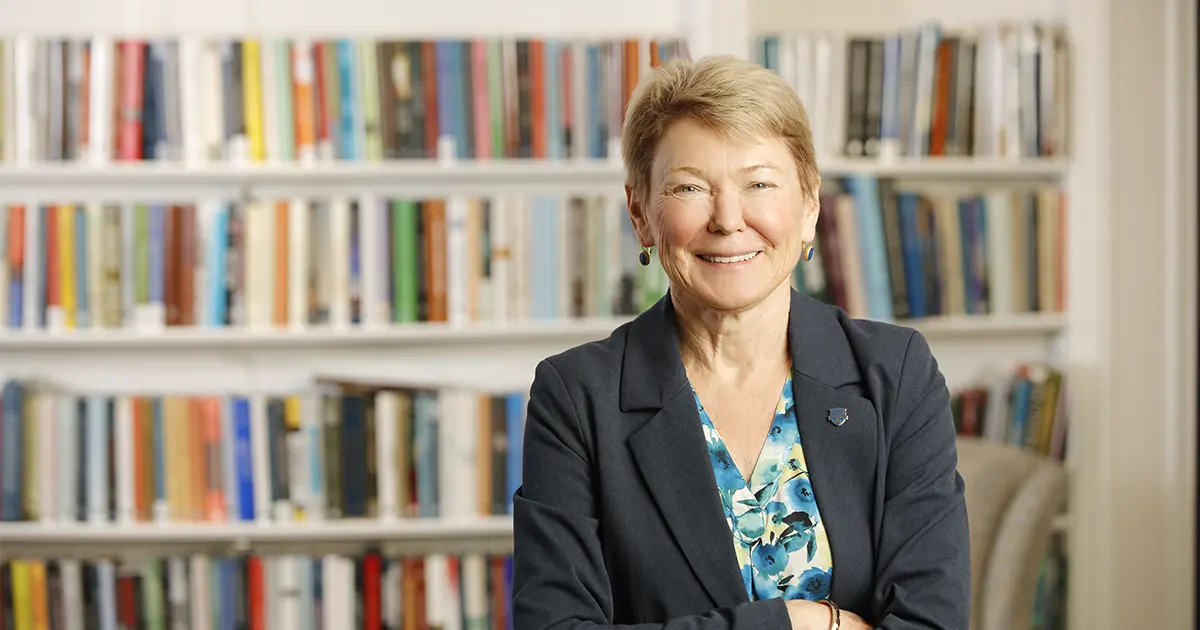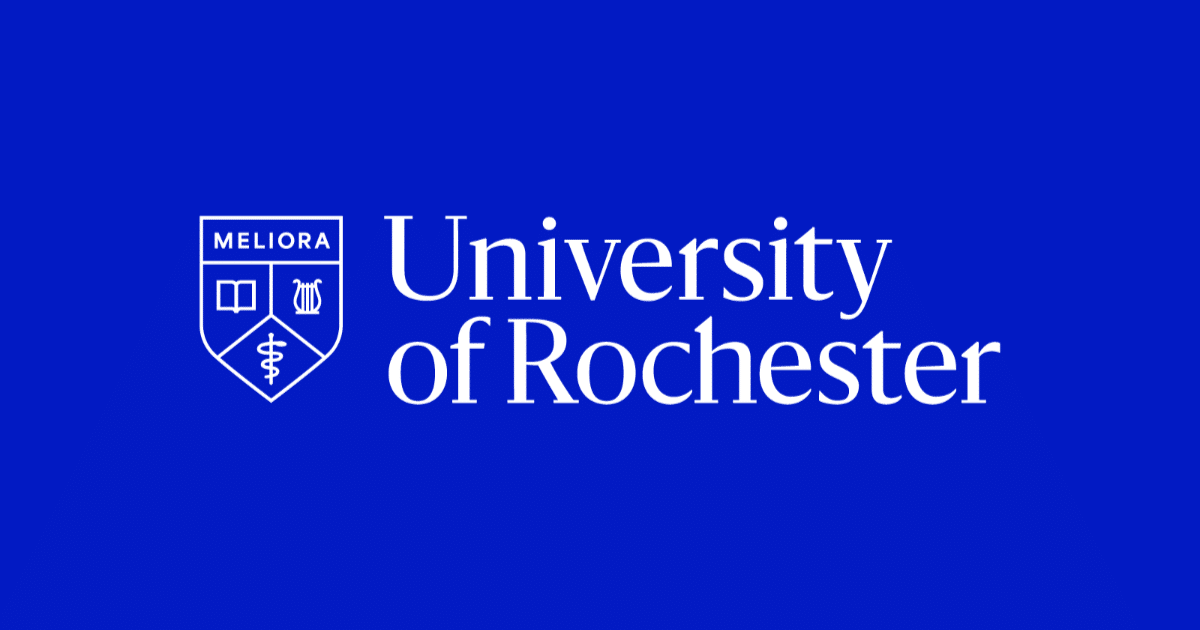Transdisciplinary RFP: Golisano Intellectual and Developmental Disabilities Institute
Building on decades of experience, this team has its sights set on creating new standards of care and advocacy for a marginalized and underserved community.
TL;DR
Healthcare, educational, employment, recreation, and other community systems continue to pose barriers to full participation for people with disabilities. By aligning resources, leveraging expertise and engaging patient advocates for guidance, the Golisano Intellectual and Developmental Disabilities) Institute at the University of Rochester Medical Center aims to advance research innovation, clinical and community service, interdisciplinary training, and authentic partnerships across the region and beyond. Jump to: their big idea; the why and why us; implications for Rochester’s reputation; the last word.
Given their significant presence—19,000 people locally and 120,000 regionally— the intellectual and developmental disabilities (IDD) community is often marginalized to an alarming degree. Patients with disabilities and their caregivers already face significant barriers in accessing care, getting helpful diagnoses and treatment, and feeling acknowledged and engaged in making care decisions and defining successful outcomes—from adaptive equipment to fulfilling careers. Like many underserved populations, they are often prevented from fully participating in a society that would benefit greatly from their presence. In June 2024, entrepreneur, philanthropist, and civic leader Tom Golisano made a $50 million commitment to the University of Rochester to build the Golisano Intellectual and Developmental Disabilities Institute at the University of Rochester Medical Center (URMC). Golisano describes his vision as “putting patients at the center of every focus and providing one-stop integrated care and coordinated customized services,” broadening access to care and enhancing quality of life for patients and caregivers.
If the Golisano IDD Institute is chosen for full-scale funding, the additional funds would strengthen the interdisciplinary framework that will foster collaboration across the University, bringing research and clinical practice into dialogue while engaging patients and advocates as strategic partners to IDD specialists.
The team
Lead:
- Suzannah Iadarola
Haggerty-Friedman Professor in Developmental/Behavioral Pediatric Research
Associate professor, Pediatrics and public health sciences
Member investigator
- Anna Majewska
Dean’s Professor, neuroscience
Professor, Center for Visual Science - Laura Silverman ’02 (MA), ’07 (PhD)
Associate professor, pediatrics
Co-lead
- John Foxe
Professor, neuroscience
Professor, neurology
Professor, Center for Visual Science
Research director, Ernest J. Delmonte Institute for Neuroscience
Kilian J. and Caroline F. Schmitt Chair in Neuroscience
Okay—Picture this…
What’s the main idea behind the center?
The University of Rochester has long-served the IDD population with research, care, and community partnerships through its Complex Care Center, Department of Neurology, Department of Pediatrics and its Division of Developmental and Behavioral Pediatrics, Leadership Education in Neurodevelopmental Disabilities (LEND), University Center for Excellence in Developmental Disabilities (UCEDD), Ernest J. Del Monte Institute for Neuroscience and its Intellectual and Developmental Disabilities Research Center (IDDRC), and the Eastman Institute for Oral Health (EIOH). However, these initiatives were spread among different schools, departments, divisions and programs—compounding hardships for those who most need the integrated care tailored to their specific needs.
Despite the presence of significant expertise and programs—clinical, community, and research—focused on IDD in Western New York, people with disabilities continue to face major gaps in participation across health care, education, employment, recreation, and other community systems. Longstanding research indicates that barriers to collaboration and alignment across programs and expertise exacerbate these inequities. A unified IDD Institute that harnesses cross-institutional expertise, resources, and partnerships is critical to lifting barriers and increasing parity in outcomes for the IDD community while deepening the University’s impact on patient care, community outreach, and caregiver support programs.
“Connecting our experts gives us the opportunity to both integrate our services across a patient’s life-course and to create more collaborative and aligned strategies to advance breakthroughs in research, clinical care, and partnership,” says planning grant lead Suzannah Iadarola. “For example, we have departments that perform bench and basic research, and others that focus on clinical implementation. Unification can bring these efforts together into a team that focuses on translational research: from lab to implementation.”
The cohesion supported by integration also allows community members to guide and shape the evolution of research practices, clinical care, and opportunities for cross-training. To this end, the institute seeks to expand upon our community advisory partnerships, which would make those with disabilities and family members decision-making partners who could provide invaluable feedback. For example, they could help identify the metrics for “meaningful clinical outcomes,” which could mean: confidently pursuing competitive employment; working with a team that uses adaptive medical equipment; or having a positive clinical encounter in which the clinical provider is actively listening. “This often requires active dismantling of ablism,” Suzannah says. “Those who are in power need to make a choice to share it, to create a seat at the table.”
Rochester is one of only six institutions nationally that has all three of the following designations:
- University Center for Excellence in Developmental Disabilities (UCEDD), providing IDD-focused training, clinical and community-based services, research and evaluation, and knowledge translation
- Leadership Education in Neurodevelopmental and Related Disabilities (LEND), providing IDD-focused interdisciplinary training program
- Intellectual and Developmental Disabilities Research Center (IDDRC), conducting IDD-focused basic and translational research
The associated Association for University Centers on Disabilities (AUCD) network provides national models of innovative training and clinical access, as well as ongoing technical assistance specific to disability work. While the University’s UCEDD, LEND, and IDDRC have each made important contributions to the local and global IDD community, the fact that they operate largely independently of one another limits the scope and impact of their activities. The distinctive strengths of each center—coupled with the University’s significant community partnerships and structured connections with AUCD—positions the Golisano IDD Institute to more effectively engage and support people with IDD and become a model of excellence in IDD clinical, research, and educational practices nationally and internationally.
Success is in the air
Why and how is Rochester poised to take this on, and what strengths is this center bringing to the table?
For nearly 60 years, the University of Rochester has engaged the region’s children and adults with IDD and their families by establishing, growing, and investing in a variety of University-wide IDD programs and facilities.
Across an expanding geographic area, people with IDD increasingly rely on the URMC for specialized, evidence-based clinical services. Telehealth has further expanded the reach and accessibility of URMC’s specialty services, which are otherwise unavailable in many communities—especially those that have traditionally had limited access to care. Suzannah explains “Telehealth expands the geographic reach of our services, removes barriers to care for those who have to travel, and allows patients to participate in their own clinical service options.”
The University has invested more than $50 million in IDD programs over the last five years, showing a strong commitment to this area. Our clinical, therapeutic discovery, and educational programs make Rochester an important regional and national resource to give people with IDD the support they need to live fulfilling and healthy lives. This is especially important given the national shortage of specialists within the IDD field. To this point, the URMC’s investment in the structured hiring and development of leading faculty and staff in IDD has poised our enterprise for innovative leadership in the IDD field.
Additionally, multidisciplinary research in IDD—including cellular and molecular approaches, animal models, and human participants—has taken place at the School of Medicine and Dentistry, on the River Campus, and at Mt. Hope Family Center. Investment in hiring faculty with a neuroscience portfolio that is relevant to IDD has resulted in enhanced federal and private funding, helping to enhance the University’s reputation as a leader in IDD research. Programs building links to the community through education, outreach, and engagement have allowed the IDD community to influence the University’s research and clinical practices. These strong links to local communities will be critical in building an integrated center that addresses the needs of people with IDD.
Rochester’s designation as one of only 15 national IDDRCs by the National Institute of Child Health and Human Development—combined with previous and longstanding UCEDD and LEND designations—was a significant turning point for the University’s aspiration to become a global leader in IDD.
The institute team would build on and bring together notable strengths and opportunities:
- Clinical — The three centers partner with comprehensive and subspecialty clinical services for children and adults with IDD, including both outpatient and inpatient services. For example, Rochester’s Developmental and Behavioral Pediatrics clinic conducts more than 15,000 visits per year across the Western New York region.
- Research — UCEDD, LEND, and IDDRC faculty hold prolific research portfolios of federal-, state-, and foundation-funded research and evaluation grants focused on IDD. The total funding for LEND and the UCEDD is currently estimated at $18 million, accounting for grants and contracts within the Del Monte Institute of Neuroscience. The IDDRC has supported more than $46 million in sponsored research projects. These funds represent an established track record in research that will support ongoing scholarship, as well as provide integrated training and professional development opportunities for new and future IDD leaders.
- Training — LEND has a nationally recognized advocacy and policy curriculum; the IDDRC and UCEDD support program-specific trainees from undergraduates to medical students and fellows. Through research projects and community outreach/ technical assistance, the three programs additionally support training for the URMC and community providers. Innovative educational programs developed at the Warner School of Education can also be leveraged for the IDD community to enhance current programming.
- Community — Authentic partnership is both a core tenant and federal mandate for the UCEDD. The proposed team has longstanding and extensive community partnerships across the local, regional, state, and national landscapes. Rochester differentiates itself further from other IDD centers through its programs that have fostered close relationships with individuals, family-disability advocates, and community organizations, who work collaboratively with Rochester faculty to identify and design programming that is responsive to the direct needs of the disability community. “We are envisioning a heightened function of community involvement in our clinical care and research agenda,” Suzannah says. “We are re-dedicating ourselves to patients and their advocates having a seat at the table along with medical experts. This requires our structures and institutional teams to make a commitment to earn their trust; make them comfortable enough to share their authentic opinions; and think about how to compensate them for their time.”
In the context of these strengths, the three programs reflect decades of progress in health care, community participation, and support for people with IDD and their families.
Reputation. Reputation. Reputation.
How will the success of the center enhance Rochester’s prominence and prestige?
Rochester’s success and national reputation in the field of IDD are inextricably linked to the individual successes of its programs, services, and training initiatives across various specialized centers. The establishment of the IDD institute constitutes a strategic and innovative move to align, integrate, and amplify the strengths of the IDDRC, LEND, and UCEDD. Nationally, institutions with AUCD triple designation that have also developed into integrated institutes have demonstrated an increased reach, visibility, and prominence. With the formation of the Golisano IDD Institute, Rochester will similarly strengthen and expand collaborations, leverage its national models of innovative clinical access, and extend its impact well beyond the Rochester region. Establishing a beacon for the IDD community affirms the University’s commitment to the research, innovative education, renowned healthcare, and transdisciplinary initiatives that explore the human experience with greater breadth and depth, in the spirit of serving others.
The last word
The Golisano IDD Institute responds to the critical need to harness, connect, and strengthen the University’s comprehensive array of patient care, research, community outreach, training, and therapeutic development activities dedicated to IDD—all drawing strength from a shared mission, commitment to strategic partners, and integrated administrative support. Gathered under an IDD institute at the University, these numerous programs and services could create the world’s leading IDD center. The Golisano IDD Institute is poised to become a leading resource for cutting-edge diagnostics and services, training models for clinicians, scientists and advocates, and community-based programming.
Related updates
President Sarah Mangelsdorf reflects on the University of Rochester’s strong progress, campus growth, and resilience heading into 2025–26.
The refreshed brand builds on the University’s 175-year legacy while spotlighting its vision and values.
The comprehensive campaign seeks to raise $1.75 billion for Rochester’s future while expanding alumni and community engagement.








